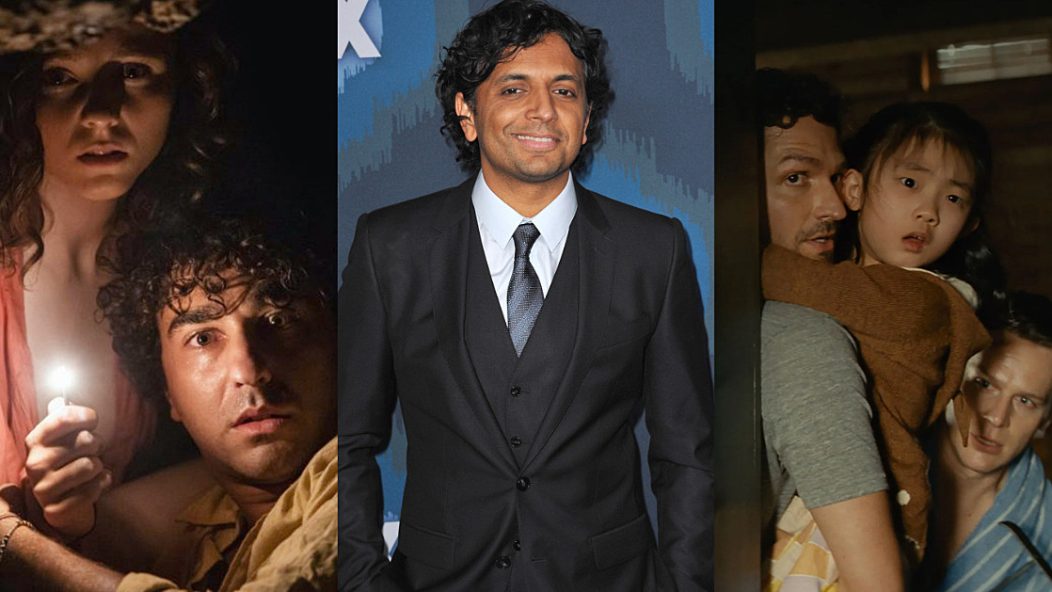
To M. Night Shyamalan's biggest fans, his cultural resurgence is no comeback
/There was a period of time when the legacy of M. Night Shyamalan was put into question. With a string of critical flops under his belt, including 2008’s sort-of-horror-comedy The Happening and 2010’s maligned Nickelodeon adaptation The Last Airbender, the Oscar-nominated director’s work was threatened to be relegated to jokes and mockery. However, as we’ve seen throughout the past couple of years, that legacy has been averted. Nowadays, Shyamalan is enjoying consistent critical and commercial success, like with the recent release of the apocalyptic thriller Knock at the Cabin, which arrived in theaters on Feb. 3.
For a select group of moviegoers, this re-embrace of the auteur’s work has been a long time coming. In fact, his fandom is alive and well. In recent years, the theater chain Alamo Drafthouse has hosted M. Night Shyamalanathons, and longtime fans are frequently vocal about the director’s artistic merits on social media. On TikTok, his name has a hashtag with over 116 million views of videos bringing attention to his most iconic scenes or arguing that he’s a genius, actually, and on Letterboxd, there’s hundreds of rankings of his filmography. Shyamalan has garnered a fulfilling and divisive career that few directors could only dream of having. But why is that? According to his most ardent fans, it’s because he toes the line between the accessible and the inaccessible, combining big, abstract ideas with those easily comprehensible in an often wonderfully weird way.
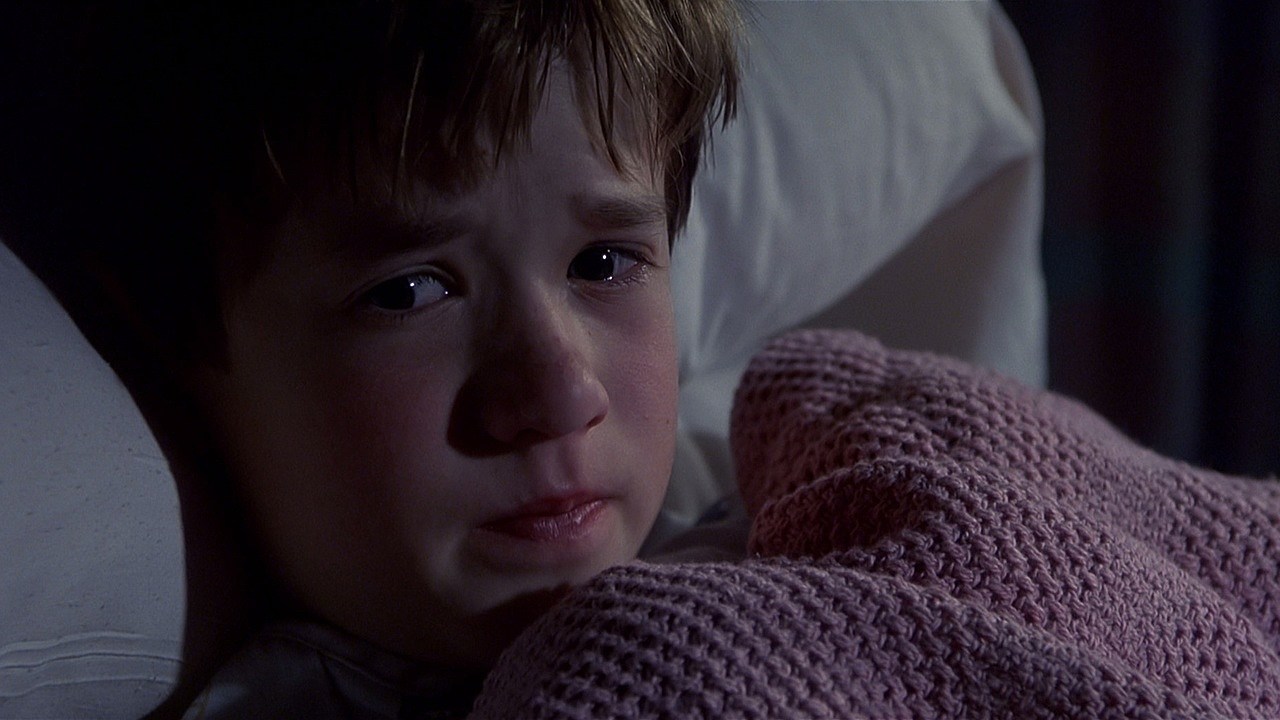
[The Sixth Sense / Buena Vista Pictures Distribution]
Many fans became interested in the director’s work after his 1999 juggernaut, The Sixth Sense. Manish, a podcaster, was one of these people, having seen it as a child during its theatrical release. “The movie was such a talking point,” he recalls. “Everyone was seeing it multiple times and discussing its shocking revelation.” The revelation in question needs no real explanation: We all know that Malcolm (Bruce Willis) was dead the whole time. That being said, its many imitators haven’t come close to the visceral feeling it evokes — an execution that proved Shyamalan was a force to be reckoned with.
However, some grew up knowing Shyamalan as endlessly mocked in the late 2000s and early 2010s. John, a freelance film critic, was introduced to the director’s work through YouTube channels like YourMovieSucks and CinemaSins. “Nonetheless, within my teenage years in the early to mid-2010s, I would become a part of this [hatred] without having watching his films,” they say. “Oh, this person said The Happening was bad? Then it must be bad.”
Many of these complaints had to do with the very thing he was originally lauded for: his story-altering twists, the otherworldly way his characters were written to behave, and what was assumed to be random developments instead of carefully placed clues. For many years, the public perception of the esteemed filmmaker was that, outside of The Sixth Sense and Signs, his work was a joke.
Of course, it’s fine not to find a director’s films interesting, but some of Shyamalan’s fans can’t help but think that racism played a role in this downturn in popularity — and it’s hard to deny Hollywood’s well-documented history of racism. It wouldn’t be a stretch to say that there were racist overtones to some of the criticisms levied at him, and despite his largely positive and cooperative reputation, he was nearly shunned by the industry for a period of time.
Columnist Jennings explains, “The ‘three strikes and you’re out’ phenomena that happened after The Happening, [The Last] Airbender, and After Earth wouldn’t happen to your average agreeable white filmmaker today.”
Shyamalan still remains an outlier as an Indian-American director, and since his initial rise and so-called comeback, he’s one of the few directors of color to have directed major Hollywood-backed films. In fact, he was the first-ever AAPI filmmaker to be nominated for Best Director at the 2000 Oscars, and despite push-back he’s received, he’s certainly helped to open doors for other filmmakers.
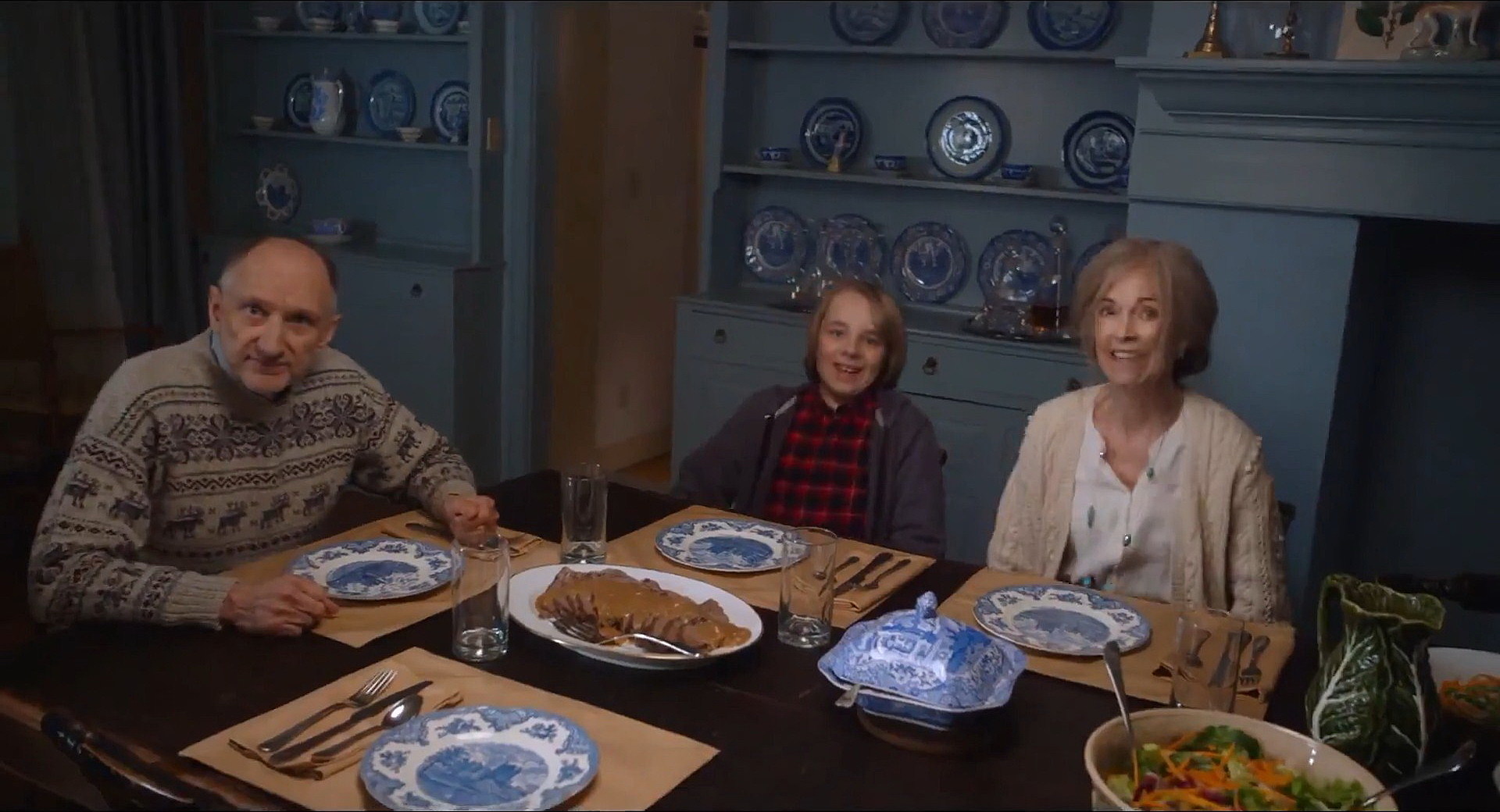
[The Visit / Courtesy of Universal Pictures]
Regardless, after the bombing of 2013’s After Earth starring Will and Jaden Smith, Shyamalan went back to his low-budget roots. Before returning to modest blockbuster fare with 2016’s Split, he self-financed his take on the found-footage subgenre with 2015’s The Visit. It was that film that offered a better look at why the director should be taken seriously again, as it proved what he could do outside of the traditional studio system.
Jennings says, “With The Visit, he was able to have complete control over the stories he was telling again, and has maintained that control since.”
Split, too, had a huge impact on his recent career. After all, in its final minutes, the thriller was revealed to be a stealth sequel to one of his most popular movies, 2000’s Unbreakable. That revelation alone hooked audiences that longed for the “old” Shyamalan back into theaters.
“The Visit brought him back into the spotlight, but I really think Split brought him back into the limelight because of those final two minutes,” John says. “Not only that, it shows M. Night could handle small, tight, contained thrillers with up-and-coming actors.”
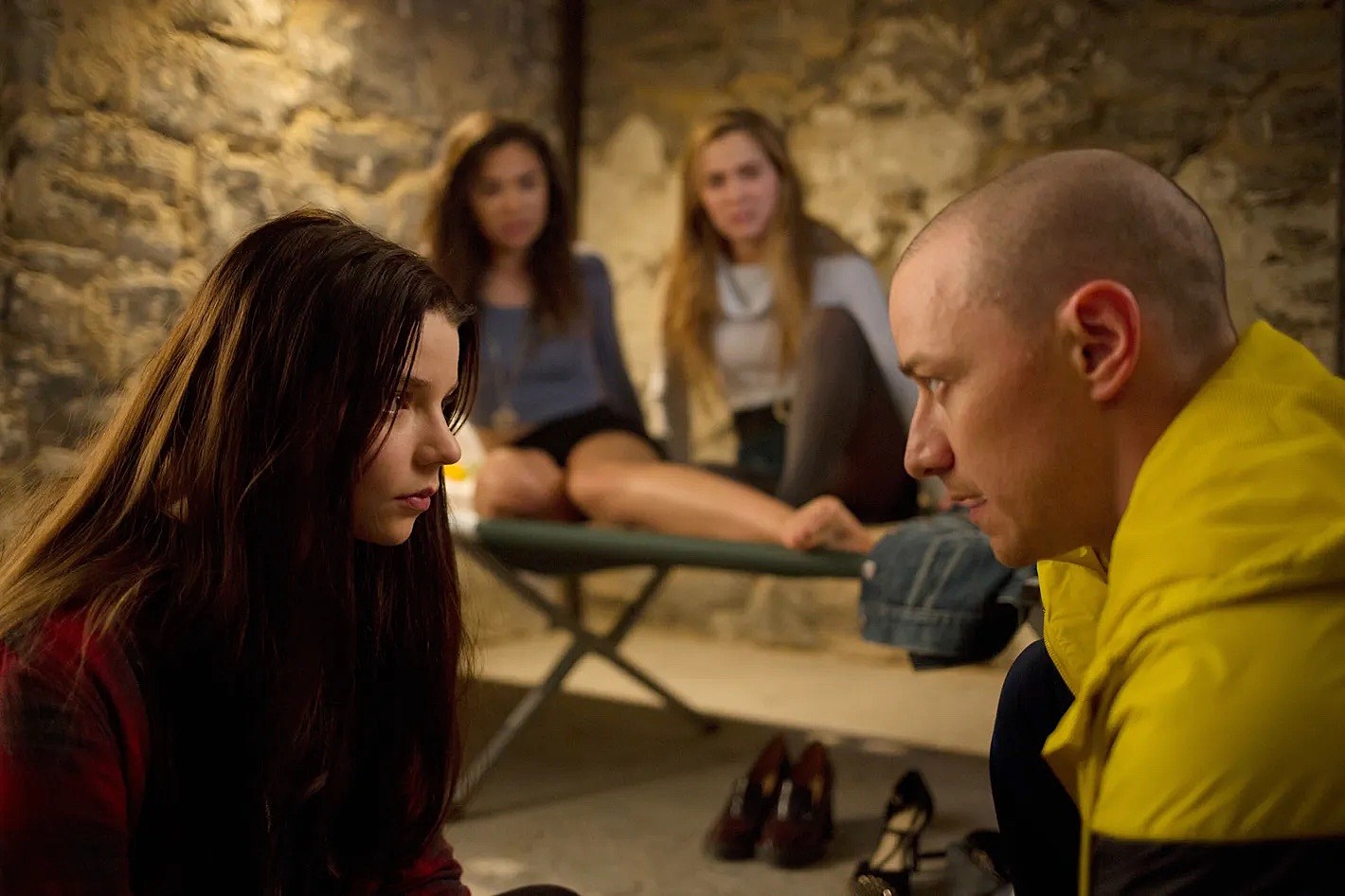
[Split / Courtesy of Universal Pictures]
Handle, he did. Split helped launch the mainstream career of Anya Taylor-Joy, who had previously garnered indie acclaim in Robert Eggers’ The Witch. This handling of newcomers and indie stars has been a consistent trademark of Shyamalan’s, present all the way in his directorial debut, 1998’s Wide Awake. Among the names of younger or promising actors his work helped promote include Haley Joel Osment in The Sixth Sense, Abigail Breslin and Rory Culkin in Signs, and more recently, Alex Wolff, Thomasin McKenzie, and Eliza Scanlen in Old. Even the much-derided Nickelodeon collaboration The Last Airbender had a compelling performance from the then-burgeoning Dev Patel. His eye for up-and-coming talent is keen, and often these under-the-radar performances garner the most acclaim in his filmography.
Perhaps the most vital point about Shyamalan’s movies that fans can’t get enough of, though, is how wonderfully weird they are. The Sixth Sense is an unconventional ghost story, Signs is about water-fearing aliens, and Old is, well, about a beach that makes you old. Even the most lambasted movie in his filmography, The Happening, has an absurd premise that involves plants evolving to influence human behavior. He’s a weird filmmaker in the best way possible, too, because his big ideas are never really hidden away, and hints about the impending reveal are often sprinkled throughout. That’s arguably something audiences are now finally catching onto and becoming excited about.
For a time being, though, those consistent, positive aspects of his career were what caused the general public to form certain ideas around Shyamalan and his sensibilities, dating back to The Sixth Sense and its cultural impact. As comedian Harper points out, “people were largely ready to accept Shyamalan as the new vanguard of populist filmmaking when he debuted.”
In addition to people loving his big swings, that big-budget movie magic might just be why so many are coming around to re-embracing him, though. “His movies are both esoteric and idiosyncratic and accessible and populist,” says Manish. “Like Jordan Peele, Steven Spielberg, Martin Scorsese, M. Night [has] the right balance of crowd pleasing and being heady and strange.”
Liv, a musician and podcaster, even believes that his initial decline could have been caused by not fully embracing his authentic style. “I think he definitely grew into those stylistic choices more and more,” she says. “A lot of his decline was fueled by increasingly foregrounding them. His later career from The Visit on still retains this focus, but he tends to marry them with more modern preoccupations.”
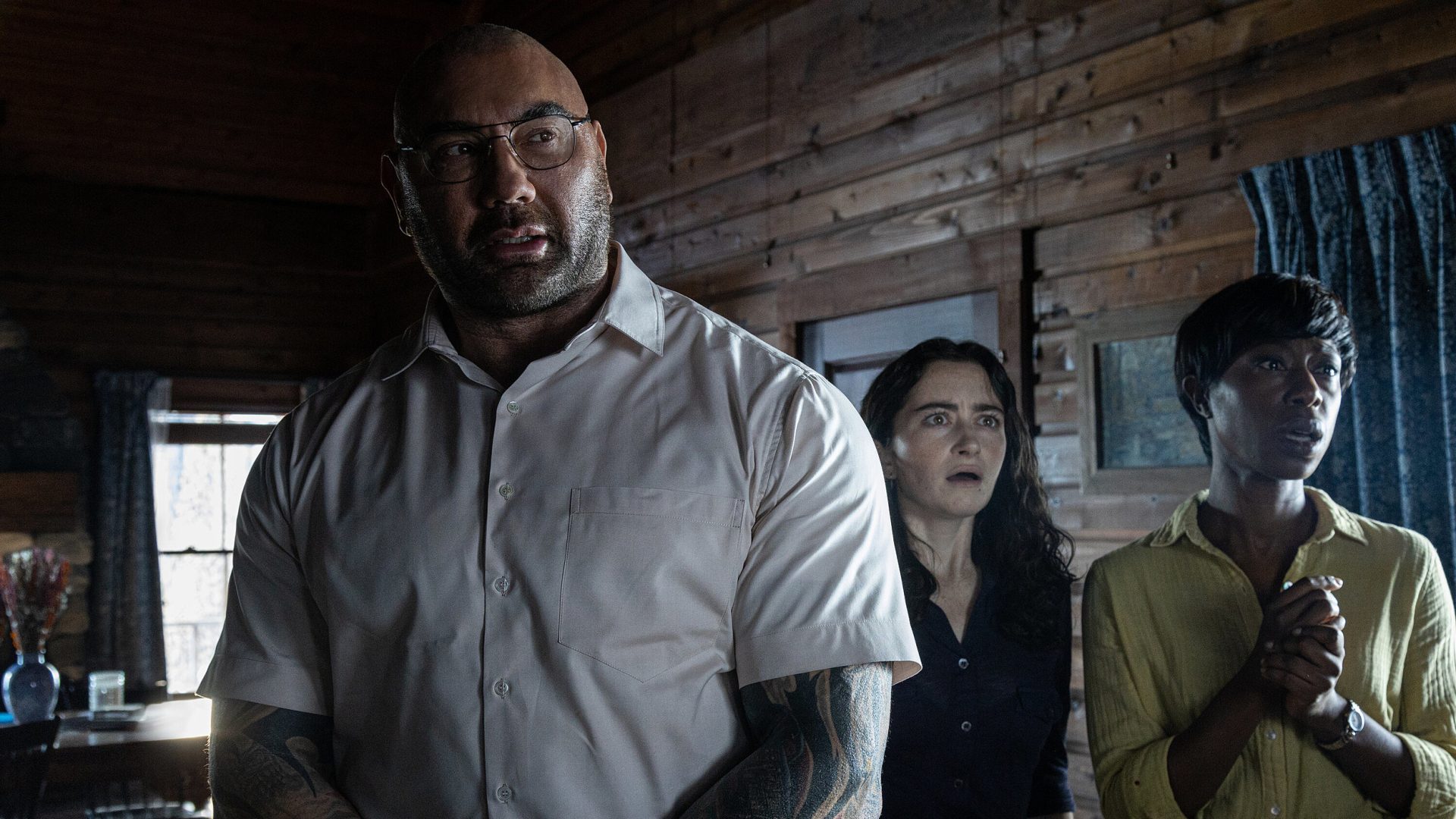
[Knock at the Cabin / Courtesy of Universal Pictures]
No matter why people are now coming around to Shyamalan’s work, his longtime fans make one thing very clear: don’t call it a comeback. And it’s true, as he’s been consistently working since 2015. His acclaimed Apple TV+ series Servant premiered in 2019 and is currently airing its fourth and final season, and his commercial successes didn’t stop at Split. The Unbreakable trilogy-ender Glass and Old all made back their modest budgets with big returns, and Knock at the Cabin unseated Avatar: Way of the Water as the No. 1 movie at the box office. Even his most divisive modern movies are able to gain audiences and fans. To say that he’s made a comeback would undermine the successes he achieved before and after his career lull. To fully get on board with what Shyamalan has to gift screens moving forward, audiences need to stop clinging to the past and start looking to the future.
“The great thing about Shyamalan is he has always persevered,” says Jennings. “If you’re still stuck in a rut over The Happening, The Last Airbender, or After Earth, Shyamalan has moved past that era, and it’s in any potential audience members’ best interest to move past that with him.”








